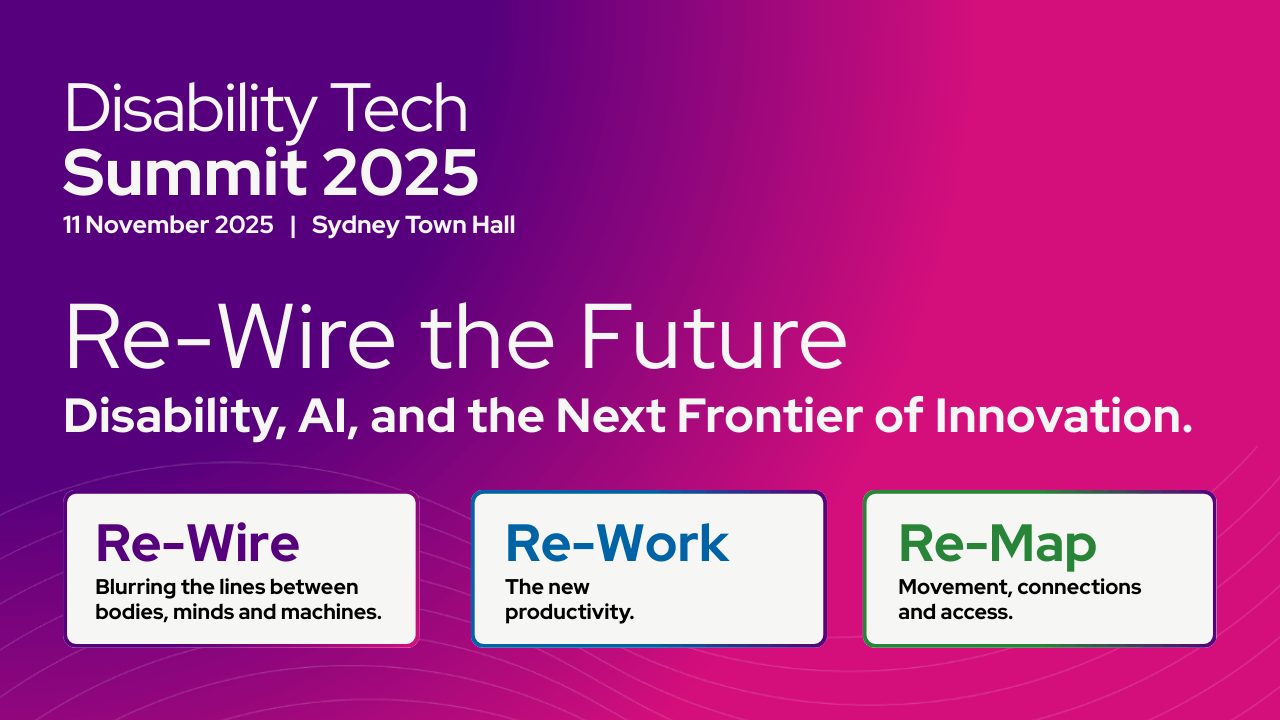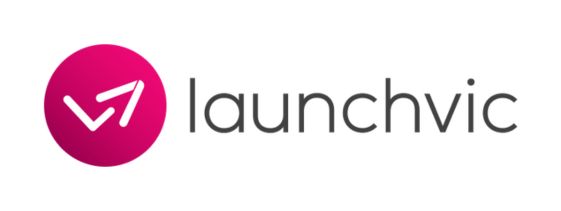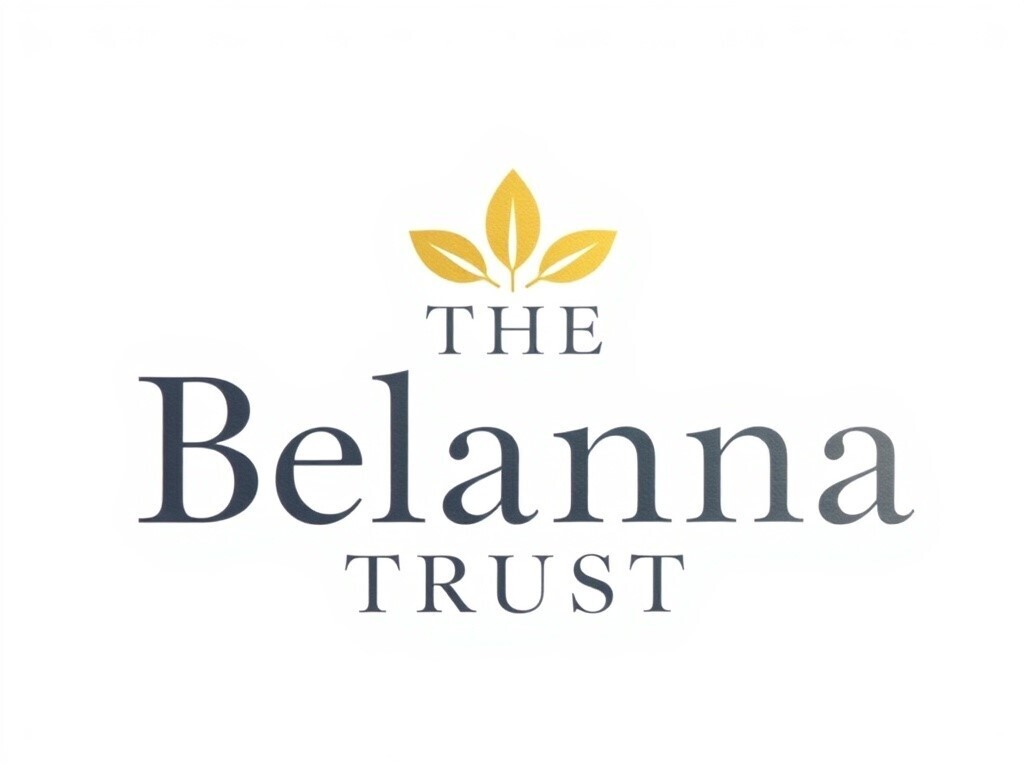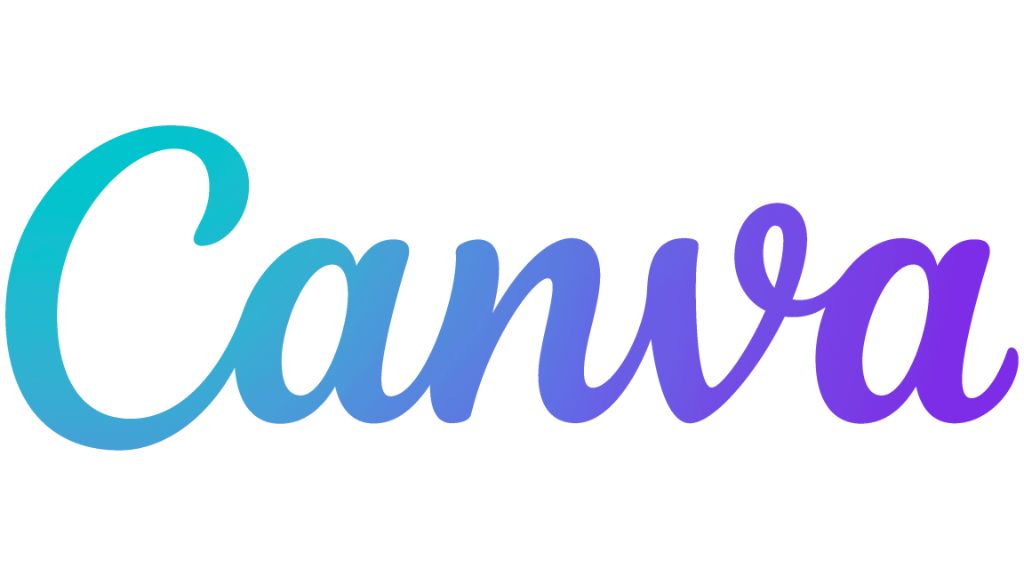%20(1).png)
Minnie Baragwanath | Fireside Chat
TALK OVERVIEW
In this enriching interview, Vivien Mullan and Minnie Baragwanath discuss the societal implications of inaccessible designs for disabled individuals or ‘access citizens’. Minnie shares her perspective on how disabled people become ‘shock absorbers’ for the inconvenience created by unaccommodating designs. Based on her personal experiences, she speaks out on the mental and physical cost of living in an inaccessible society. Furthermore, she also touches on issues of withholding support and power, stressing the need for radical social change and innovation that includes disabled individuals as active participants.
Full transcript available below.
TOP INSIGHTS
1. The Disability community as shock absorbers: Minnie introduces the concept of disabled people serving as ‘shock absorbers’ for the inconveniences caused by inaccessible societal designs.
2. Cost of Inaccessibility: She highlights the overlooked costs that inaccessible societies impose on disabled people in their day-to-day lives.
3. Withholding Support and Power: Discussion on societal tendencies to withhold support, resources, and power from disabled people, which hinders the development of a more inclusive society.
4. Need for Radical Social Change: Minnie underscores the importance of radical social change to ensure the full inclusion of disabled individuals in innovation, design, and entrepreneurship sectors, leading to a more accessible future.
ABOUT THE SPEAKER: MEET MINNIE BARAGWANATH

Minnie Baragwanath
Author, Social Entrepreneur & Access Innovator
Chief Possibility Officer at the Global Centre of Possibility
LinkedIn: Minnie Baragwanath MNZM
Minnie Baragwanath is an independent author, coach, consultant and social innovator. In addition to the variety of work she has underway globally, Minnie is also currently the Chief Possibility Officer and Founder of the newly established Global Centre of Possibility @ AUT.
In 2011 she, along with her incredible team and Board established Be. Accessible, a social change agency committed to the creation of a 100% accessible Aotearoa particularly for the 25% of people living with an access need. In 2019 Minnie led the transformation of Be. Accessible into the Be. Lab and in 2020 established what was to become the Global Centre of Possibility @ AUT.
Minnie’s focus on Possibility, with its unique emphasis on “Possibility leadership, design and innovation” as the key to future social transformation, is the next chapter in that pioneering story! ‘Possibility Leadership is the capacity to imagine and create a future of possibility, beyond current limiting paradigms, and beyond current concepts of disability and accessibility.’
The concept of “designing with” is absolutely fundamental to this approach. It is distinct from designing to or designing for which are the common defaults when approaching any type of design with the access community.
Minnie’s work and study as an access innovator and as a social entrepreneur, extends over 25- years and has included many diverse roles. Over the last few years Minnie has been awarded the New Zealand Order of Merit, the Sir Peter Blake Leadership Award, the Westpac Women of Influence Diversity award, the Zonta women’s award and was placed as a top 10 finalist for the Kiwibank New Zealander of the Year.
Earlier this year Minnie published her first book titled ‘Blindingly Obvious – The beautiful vision of Minnie B.’ More information about where to purchase this book is available at, https://www.minnieb.co.nz/blindingly-obvious
Image Gallery
Viv [00:00 – 00:39]
I thought before we get into our conversation one of the amazing things about you is your use of language you’re an amazing writer and an amazing speaker and I understand this is a really safe space for people to choose language that feels right for them. Remarkable use the term ‘Disability Tech’ and I know that this is a term that you don’t choose to adopt and you use terms terms like ‘Human Tech’ and ‘Access Citizens’ and I just thought before we dive into the conversation maybe you’d like to speak to that a little bit more? Minnie [00:39 – 02:56]
Sure Viv and look thank you so much for having me as part of this amazing event. I’m so devastated that I couldn’t be there at the last minute. So probably what I’d say is language is so pivotal especially when it comes to social change at I think conveying what it is we’re trying to achieve and so I think there’s a range of language that people can use and I think the critical thing is to understand why we choose to use the language we use. What’s that about. What is it conveying? Is it a language we can grow into or is it an outdated language that perhaps once served a purpose and was really powerful but maybe needs to keep evolving? So for me it’s about the ability to keep questioning and being very intentional about the language and why we use it. I quite love the concept of ‘Possibility-Tech’, ‘Possibility-Design’, and ‘Possibility -Leadership’ which is about future centered accessible design and Innovation, that’s a framework that I personally really relate to and it makes sense to me as I understand the world that we’re in. Now that may not be the case for other people but I think at a conference at an event like this you’re exactly right this is the space to actually explore and to keep challenging ourselves on which language we choose to adopt. I’m very happy for a range of language to be used I won’t be offended but it just might be that I might choose to use different language through this conversation…and as a person from New Zealand we speak differently. Viv [02:56 – 03:32]
In New Zealand they say “chilly bin” for what we in Australia know is an “eskie” and I don’t know what Americans call it? A “cooler”? Alright I think New Zealand’s ‘chilly bins’ are way more fun. Okay so when it comes to the language you use, one of the really powerful concepts that you’ve sort of coined in your work is this idea of people with disabilities being “shock absorbers” for sort of the inaccessible designs within society. Would you be able to expand on that? Minnie [03:32 – 08:01]
So as Pete said at the beginning I’ve worked on accessibility social change for oh my goodness well for at least 25 years and when I was 15 I was diagnosed with a congenial sight condition which means that I’m also legally blind. So from that age I became very aware of what it was to grow up in the world as someone living in this case with blindness but it could have been any type of impairment or or disability and as I’ve sort of continued to try and advance my work and to try and strive to create a more accessible world, as many people in the room here today I’m quite sure have done the same. One of the things that I’ve been reflecting on is actually there is a price to be paid for being an inaccessible society and any of us who live with an impairment or disability encounter that price, that cost every day of our Lives when we’re prevented from literally accessing the world around us. What fascinates me is that we we often talk about the cost of, well we government business usually those parts of society who are unwilling to change, talk about the cost of making the world more accessible so they say we can’t invest in accessible Tech or we can’t invest in entrepreneurs with a disability or we can’t put that lift in here or there or whatever the conversation might be because it costs too much. But what I notice is we’re never talking about the cost of our deeply inaccessible world and the cost of maintaining a status quo which is not benign but is actually very damaging by its very nature. So that’s why I started to think about it and I thought actually those of us living with an impairment our families, our friends, our immediate spheres are the shock absorbers. Somehow we’re expected to absorb into our bodies into our lives that inaccessibility and it comes at a price and I think it comes at a price of burnout it comes at the price of getting sick often. I think it’s something we don’t often talk about and I think the other part of that is when we think about leaders, innovators, entrepreneurs, CEOs, Founders who live with an impairment of any sort and I know this firsthand having been the founder of several organizations as a blind woman there is a price to being a pioneer and when you’re out the front pushing at the edges of what’s acceptable pushing at the boundaries of what society deems acceptable that also comes at a price and a cost because the way has not been paved. The path through the forest if you like has not yet been cleared so we are doing the clearing. We’re having to clear the path and one of the things that I’m really interested at an event like this which is such an important Summit and again I just want to say I just have such admiration for Remarkable for yet again pulling off such an a remarkable event to create the space for these conversations but one of the things I don’t know if we’ve truly explored as a community, and as a growing community, is what is the current price and cost that CEOs Founders innovators entrepreneurs who live with an impairment are paying to do this work right now. Viv [08:01 – 09:08]
I think that actually echoes a few conversations I’ve had at the Summit and also to a degree learning from an experience of having to come to terms with the fact I put a lot of effort into masking to try and fit into roles and responsibilities as I’ve kind of navigated my career and trying to unlearn these behaviors and give myself space to heal and grieve. I think when you’ve done it for so long you get hit with sort of a postponed grief and exhaustion which is a bigger cost and I suppose one that requires you to be patient with yourself and to be okay asking people to be patient with you. Have you had experiences in your career where you have tried to articulate the cost that you have paid for this inaccessible society and it has just been received with essentially just shrugged shoulders and people not understanding? Minnie [09:08 – 14:42]
I think the challenge we’ve got is that this is quite an emergent space right now so this area of Technology Innovation entrepreneurship and design in my mind it is the single most important area in terms of if we are to truly ever create an accessible future for the nearly two billion people worldwide living with a disability if we collectively can really understand what is needed to ensure that access entrepreneurs designers innovators and leaders can thrive and do their work well then I think we can create an accessible society. If we do not understand and if we don’t ask the question ‘what is needed for a blind CEO to thrive and succeed?’, ‘what is needed for a Deaf entrepreneur to thrive and be successful?’If we don’t ask those questions and understand what’s required in terms of resourcing behavior and attitude all of that then we’re not going to see the change that’s possible in the world. In order to do that I think we need to have some shared frameworks for having these conversations. I only really started to understand the true cost of an inaccessible world as a blind CEO after I went through cancer and then I had a very unexpected and quite shocking experience of heart failure in 2020. As a blind woman CEO living alone in my home in New Zealand but also still trying to run a progressive social change organization but without any support that I needed to really function well. What I realized was that we didn’t have sort of a shared framework to have that conversation and to be able to say ‘Hey how do we talk about this in a way that other people don’t feel defensive? Don’t feel criticized? Don’t feel like they’re failing?’ I think the challenge is when we start to raise these issues firstly as the CEO or the entrepreneur people around us who feel they’re there to support us might feel criticized and that’s not my intention. My intention is to say hey everyone’s doing their best but perhaps we need to be doing more or better or differently. But how do we talk about this in a way that we can all come to the party? This is where this idea came to me of what I call being able to take an approach that is based on this idea of how do we be ‘with’ as in ‘with’ our access entrepreneurs, leaders, innovators and designers. How do we show up with these key innovators in a way that we’re all actually set up to succeed and not trip at every hurdle that comes up before us. So it’s a model for success but it’s also a new social contract saying as the innovator, entrepreneur, designer there may be things I need that someone else does not need there may be ways of operating and running my organization or my Enterprise in order to be truly accessible that actually does not fit neatly into that government contract that I’ve just signed up for it might mean we have to push back on a whole lot of traditional ways of thinking about entrepreneurship and design that actually is challenging for other designers other accelerators because we start to disrupt everything around us if we’re being true to our way of working and so it’s not an easy conversation but but I think if if and this is why I wrote my book in many ways was because I thought actually I look back and I think if I’d had a framework from the age of 15 day where I could have talked to my family my friends as I went through education employment and then as I went out into the world trying to Pioneer change through my different organizations if I had this framework of weth what might have been different and I think when I think about this immersive uh immersive emerging space of whether we call it disability Tech or as I like to call it possibility Tech design and Innovation I think we need some shared ways of talking of leading and understanding each other that are fit for 2023 and Beyond. I don’t know if that answered your question at all Viv… Viv [14:42 – 15:13]
it did it and one of the parts of this sort of social contract is this term ‘withholding’ and in essence and correct me if I’m wrong but the concept is that as we sort of entered this space with each other there are undeniably and sort of inevitably these people that withhold and are resistant to that change and those people are people that are outside the disability community and inside. Could you speak to that? Minnie [15:13 – 20:02]
absolutely and so if ‘with’ is how we birth an accessible future and interestingly the word ‘with’ has some of its early origins in old German and it has to do with being a midwife actually helping a mother to birth something. So if we think about ‘with’ as every moment of every day with every decision we make we are either enabling or disabling the birth of a more accessible society. So I’d love us to really think about what does ‘with’ mean? What could it look and feel like in this area of emergent technology for this future? We are all collectively trying to birth but then the other side of that because there’s always an opposite is when withholding happens. When for whatever reason we and I mean “we society”, a colleague, someone working as a designer. a friend, a family member, hold back something that is fundamental to that birthing of that accessible future. That might be we hold back our support, we hold back our generosity of spirit, we hold back funds but what I find really interesting is often we hold back power. In my experience we’re okay with people with a disability or access need reaching a certain level but are we really ready for blind people, Deaf people, people living with any kind of impairment to lead this radical revolution of possibility technology? Or are we withholding that opportunity because actually we don’t want to give away that power? That resource we don’t want to give away to this community? Because for whatever reason we’re fearful. It’s uncertain, it’s scary, it’s uncharted territory. So I think often withholding happens and we all do it. It’s something that I think we need to become cognizant of ourselves. It’s when we put a chair in the way of an accessible hallway. It’s when we choose to print something in size font instead of something larger. It’s when rather than smiling at somebody we frown at them. I have this example in my book, it was so pertinent to me. I had this massive contract that I was negotiating with about $1.5 million for an accessible Employment Program when I was running one of my organizations and in those big meetings I pour tea or coffee for my guests – you know it’s part of being a good host just to be able to pour a cup of tea and a coffee for your guest. Now that might sound really small but actually it’s a fundamental part of building a relationship through a contract negotiation and the member of my team whose job it is to support me as the CEO in that moment and there was obviously something going on for them okay but in that moment when I said would you be able to pour the tea they felt that task was suddenly beneath them and they actually walked out of the room and I couldn’t see they’d walked out of the room but I keep thinking where have they gone? Now in that moment that team member withheld an act of support that was part of enabling the birth of an accessible society. That single act of withholding almost derailed a $1.5 million contract negotiation; those are the stakes we’re talking about. Sometimes it’s the smallest things like that of withholding that actually can have the biggest impact and they’re often the hardest things to pinpoint. We often look to bigger examples around funding but it’s each of those little micro moments that determine whether a new Enterprise gets off the ground. They determine whether a new innovation sees the light of day, whether an access entrepreneur can actually flourish and create a successful organization Viv [20:02 – 20:52]
I’m going to read one of my favorite quotes because it’s great it’s “No matter how cool disruption can be made to sound I now believe most people do not want disruption especially if they’re the ones who need to change in order for it to occur the fact is that we all need to change for True access to occur no one is exempt. And I now know in my heart that very very few people are brave enough to stay the course as we go out and into the fire’ Now that’s a big quote and when I first read it I got genuine chills but I would love you to expand on what that means for everyone in this room who are are really facing this challenge of disruption in what they’re doing? Minnie [20:52 – 25:01]
I think again I I look at the this through the lens of for those of us who putting ourselves right in the in front line of social change because you know everyone who’s here at this event no matter what hat you’re wearing we are part of a radical movement of social change and by its very nature change requires us to do things differently and it is disruptive. You know in the next part of that quote I say is that people and marketers will water this concept down all the time and they’ll call a new chocolate bar or a new type of bottled water disruptive and it’s like oh my goodness it’s so not but when you think about the Civil Rights Movement in America the kind of radical social change movements and protest that we see around the world every day, women in countries you know where their basic human rights have been stripped away day after day after day but who bravely come out onto the streets and protest that is disruption. Now I think the challenge for us in a space like the Remarkable Tech Summit is we have to remain brave. We have to remain on the cutting edge. The world of Entrepreneurship, the world of business, the world of design also play it safe. There are models right now and in the world of business and this is one of my big bug bears actually and concerns with the space that we’re all a part of at the moment have we yet created an economic model where the value of the technology and the Innovation that has been created comes back to the access community? As the designers and innovators and entrepreneurs? Because what I often see and this is a quote from an amazing designer Liz Jackson but many of the Innovations and Technology the acess community radically fights for the money that’s generated whether it’s by big companies like Microsoft and sorry I don’t mean to just point them out, it could be any company when these products get commercialized which of course is is fine – where do those profits go? Until the access Community has direct access to the resourcing to actually lead the innovation of what I call “possibility design” we’re always going to be in the position where we are waiting to be invited to the table, we are waiting to be included. This is why I struggle with the term inclusive design as well because for me inclusive design is often about those who have the power and resource inviting us to the table – if we want and if they deem it appropriate or timely. We’re often invited to the table in a way that suits them, not necessarily us. So I think we need to be thinking about inclusive design along one platform and then what I like to call possibility design along another platform. We need to be doing both. We need to be ensuring the things that are being designed right now have accessibility built into their DNA but then we need to be having radical possibility design that is designed by the access community with our own resource base, with our own ways of designing, innovating, creating, going to market that honors a truly accessible worldview and that is disruptive. Viv [25:01 – 25:26]
That was a very powerful way to end this chat – I am conscious that our time is up but you have just released your book and a a round of applause for you. Where can people access purchasing your book, is that on your website? Minnie [25:26 – 25:47]
It’s on my website. I think there’s a beautiful slide that I sent through with an oh I’ve never done a promotion like this but it’s actually so at Min b. co.nz so m i m m i e at Viv [25:47- 26:03]
We’ve got it up on the screen Minnie, so people can it’s m i n n i e b dot Co dot NZ but we’ll share that with everyone. Minnie we’ll get you back on the screen and just say big thank you for coming and joining us.



.png)
.jpg)


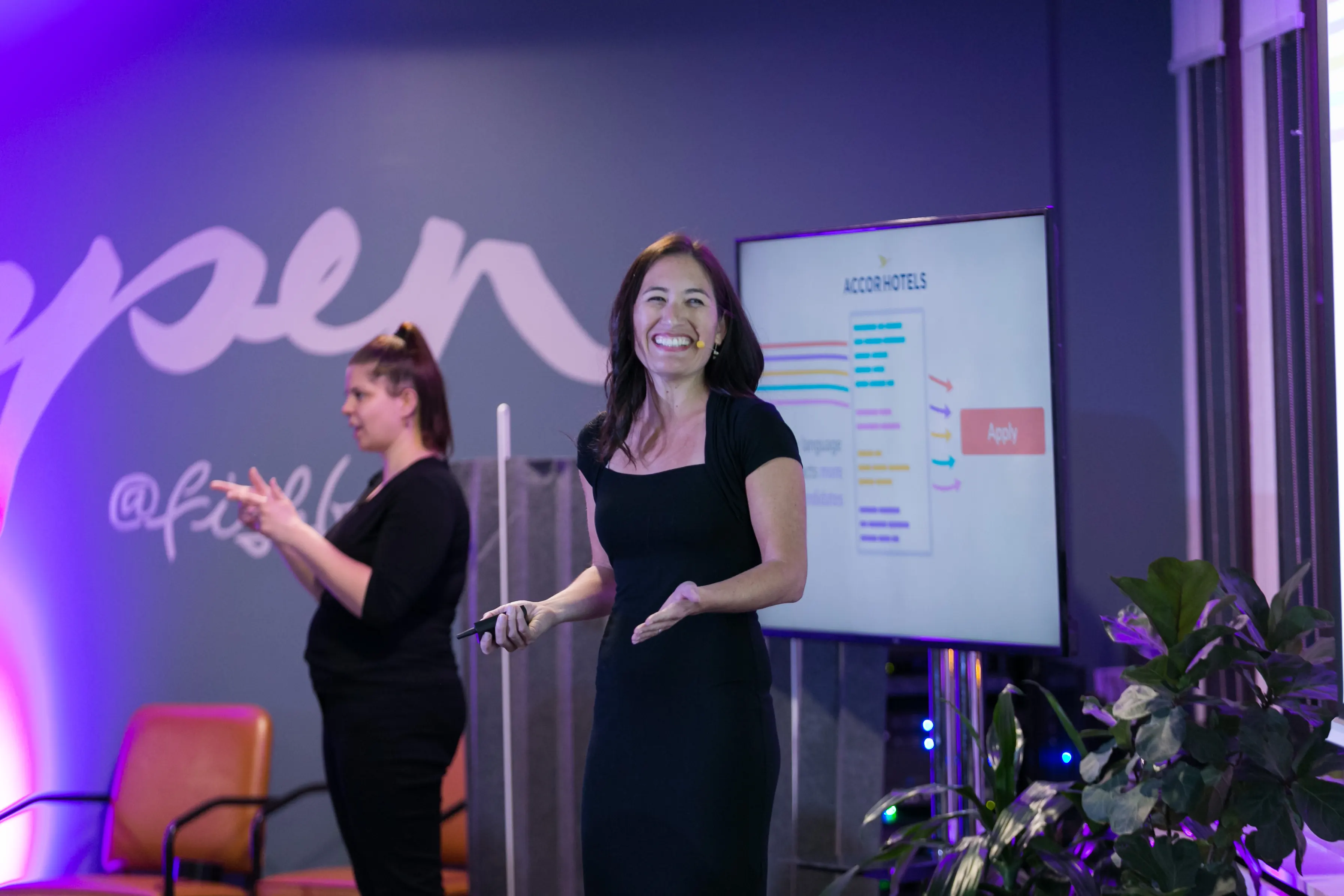


.png)

